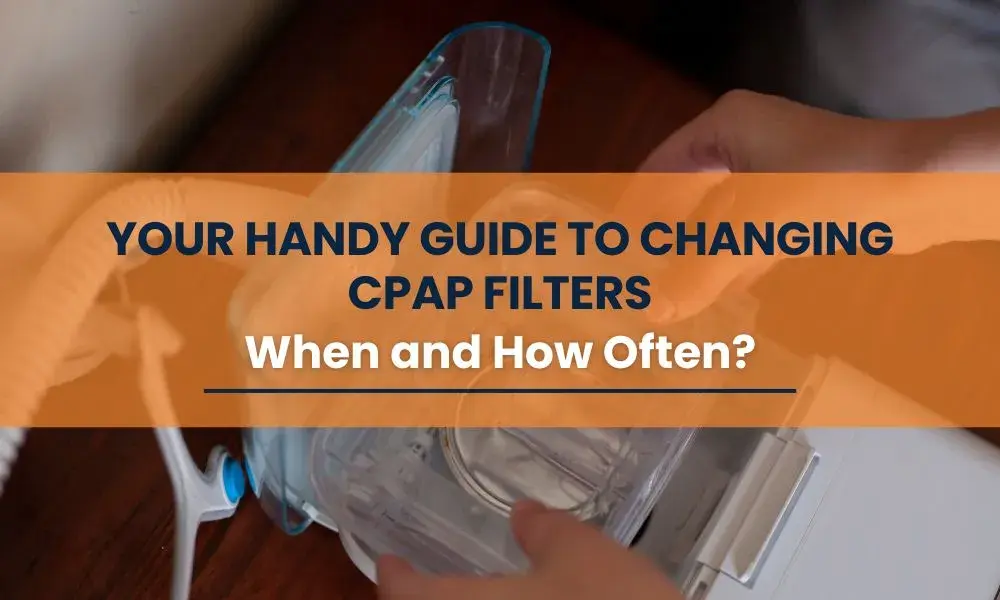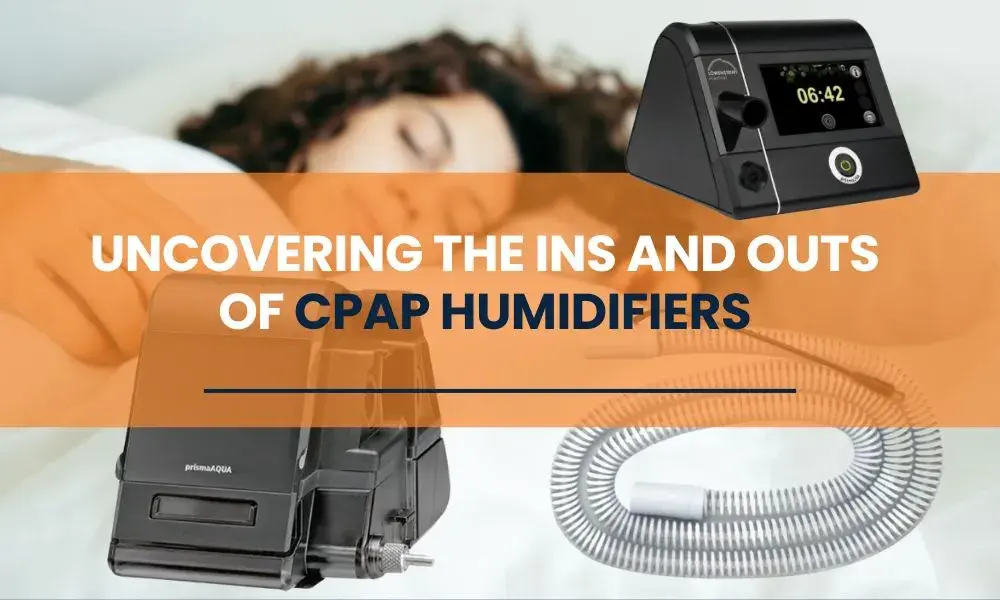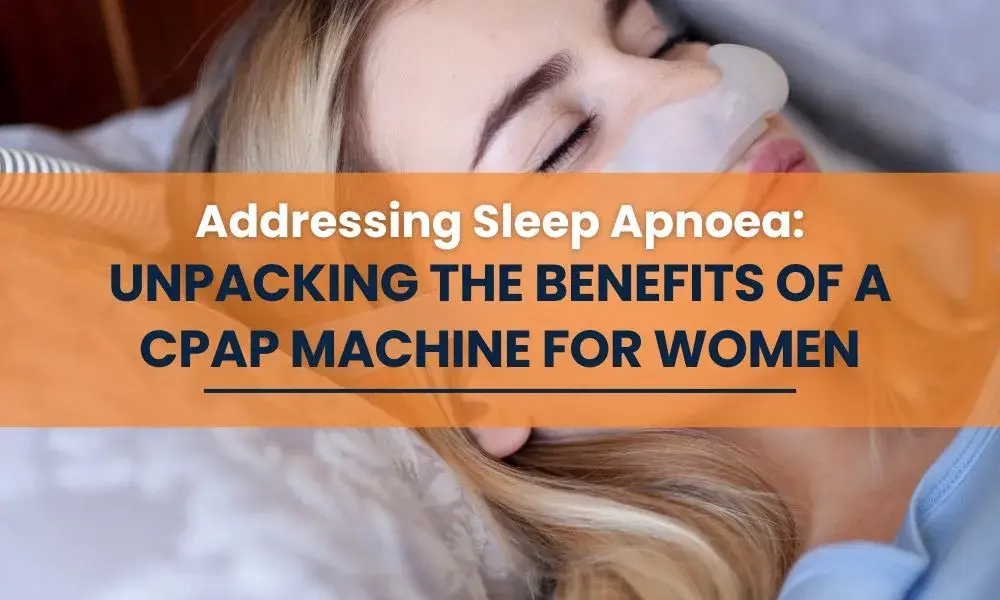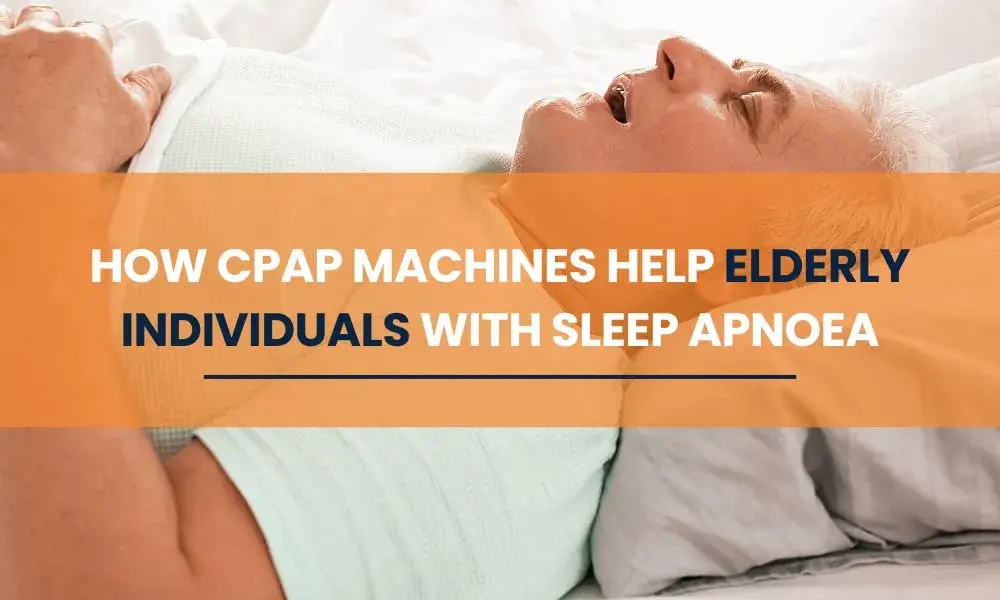Are you using a CPAP machine to help manage your sleep apnoea? If so, you’re probably already aware of the importance of regularly changing your CPAP machine filters. In this handy guide, we’ll cover everything you need to know about when and how often to change your CPAP filters to ensure optimal performance and clean air delivery. Let’s dive in!
Understanding Your CPAP Machine Filters
CPAP machine filters can significantly enhance your sleep apnoea therapy experience. Essentially, these filters serve as the first line of defence, ensuring that the air you breathe whilst using your CPAP machine is free from dust, pollen, and various airborne particles.
There are primarily two distinct types of CPAP filters you should be familiar with: disposable and non-disposable filters. Disposable filters, often crafted from paper or fabric, are designed for regular replacement to maintain air quality. On the other hand, non-disposable filters are built from durable, washable materials, allowing them to be cleaned and reused over time.
Understanzing the specific requirements and maintenance schedules for each filter type can play a pivotal role in optimising your CPAP therapy, ensuring you always have access to clean, uncontaminated air. Familiarising yourself with these filter types not only contributes to the effectiveness of your treatment but also underscores the importance of regular maintenance for your device’s longevity and performance.
The Signs It’s Time to Change Your CPAP Filters
Keeping an eye on the condition of your CPAP filters is important in sustaining the effectiveness of your sleep apnoea treatment. Key indicators that signal it’s time for a filter change include a noticeable accumulation of dust and debris, diminished airflow, an uptick in the machine’s noise level, or any discernible reduction in the quality of your therapy.
Encountering these signs shouldn’t cause alarm but should motivate a swift filter change to maintain the healthful air quality you rely on. Observing these symptoms ensures your CPAP machine continues to operate efficiently, providing you with the clean, fresh air necessary for a good night’s rest.
The Recommended Schedule for Changing Your CPAP Filters
Navigating the timeline for swapping out your CPAP filters needn’t be a chore, and getting it right is crucial for keeping your sleep apnoea therapy on track. With a variety of filters at play, each has its own lifespan and maintenance schedule, making it important to tailor your approach to your specific needs.
For those utilising disposable filters, the consensus among experts suggests a refresh every one to three months to keep your air flow fresh and your therapy effective. These filters, being the frontline against dust and pollen, fill up quicker and therefore need more frequent changes.
On the flip side, if your CPAP machine employs non-disposable filters, a rinse under the tap or a gentle clean as per the manufacturer’s guidance every fortnight keeps them in prime condition. Despite their robust nature, even these filters require a replacement eventually, typically around the six to twelve-month mark, to ensure your machine remains clean.
Adhering to these guidelines not only promotes a healthier breathing environment but also safeguards the longevity and efficacy of your CPAP machine. External factors such as pets, seasonal allergies, or living in a high-pollution area might necessitate more frequent changes. Always keep an eye out for signs that your filters are due for a change and consult your CPAP machine’s manual for any specific recommendations, ensuring you continue to breathe easily night after night.
Step-by-Step Guide on Changing Your CPAP Filters
At Rockingham CPAP, we have developed this step-by-step guide to help you with changing your CPAP filters. This simple task is crucial for maintaining the efficiency of your CPAP therapy, ensuring you continue to enjoy clean, filtered air every night.
1. Locate and open the filter compartment: This is usually found on the back or side of the machine, but if you’re unsure, a quick peek at your user manual should point you in the right direction.
2. Remove the filter: If you’re dealing with a disposable filter, carefully take it out and dispose of it responsibly. These cannot be reused and require regular replacement to maintain air quality. For those with non-disposable filters, you’ll want to carefully remove it and give it a thorough clean as per the guidance provided by the manufacturer, typically involving a rinse under lukewarm water.
3. Insert the new/clean filter: Make sure it sits snugly and correctly within the compartment – alignment here is key. A misaligned filter won’t be able to do its job properly, potentially compromising your CPAP machine’s performance.
4. Close the filter compartment.
Your CPAP machine is now ready to go, primed to provide you with another night of clean, uninterrupted air. Remember, regularly changing or cleaning your CPAP filters is a small but important step in your sleep apnoea therapy journey, ensuring you receive the most beneficial treatment night after night.
Tips for Extending the Life of Your CPAP Filters
To ensure your CPAP filters go the distance, keeping them clean and dry is paramount. For non-disposable varieties, a regular wash in line with the manufacturer’s guidelines will help them last longer. Shielding your filters from direct exposure to moisture and other liquids will also safeguard their integrity.
It’s beneficial to house your CPAP device in an area that’s as free from dust as possible. Implementing a filter cover can offer an added layer of protection against airborne particles, further extending the lifespan of your filters. These simple yet effective strategies will contribute significantly to maintaining the efficiency of your CPAP machine, enabling you to enjoy cleaner air and uninterrupted therapy sessions.
Rockingham CPAP: Your Complete Sleep Apnoea Specialists
Having sleep apnoea doesn’t need to keep you awake night after night. At Rockingham CPAP, we work with a network of experts, including device manufacturers and specialist physicians, to give you coordinated start to finish services.
We work with your GP and sleep experts to design a sleep treatment system that is tailored specific to your needs. Book your consult today by contacting us on 08 6186 6636 or visiting our website.




